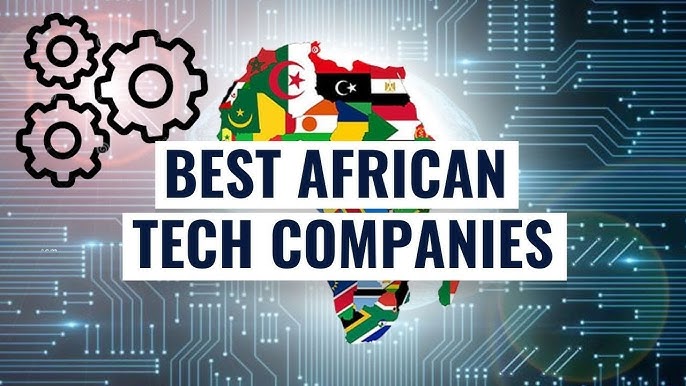Africa’s tech landscape is evolving rapidly, moving beyond being just a consumer market into a hub of innovation, competition, and digital transformation. With a projected digital economy worth over $180 billion by 2025, global players and homegrown innovators alike are reshaping how Africans connect, work, and do business.
From telecom giants to fintech disruptors, a handful of brands stand out in defining this transformation. These five tech powerhouses are not only scaling across the continent but also changing daily life for millions.
MTN Group: More Than Just Telecom
MTN, the South Africa-based telecom giant, is Africa’s largest mobile operator, connecting over 280 million people across more than 19 countries. But MTN is no longer just about calls and data—it has transformed into a fintech force.
Through its mobile money service, MoMo, the company processes billions of dollars in transactions annually, giving millions of Africans access to digital wallets, transfers, and microloans. In countries where traditional banking infrastructure is weak, MTN’s role is nothing short of revolutionary.
Safaricom and M-Pesa: The Mobile Money Pioneer
In Kenya, Safaricom’s M-Pesa is often described as the continent’s original fintech revolution. Launched in 2007, M-Pesa has grown into a lifeline for financial inclusion. From paying school fees to running small businesses, Kenyans and East Africans rely on M-Pesa daily.
Its impact goes beyond convenience—M-Pesa transactions account for a significant share of Kenya’s GDP, highlighting how deeply embedded the service is in the economy. The brand has since expanded to other African markets, reinforcing its dominance as a financial tool built for Africa by Africa.
Flutterwave: Nigeria’s Fintech Unicorn
Flutterwave, a Nigerian-born payments company, has rapidly become one of the continent’s most recognized tech brands. With operations in over 30 African countries, Flutterwave provides payment solutions for both global giants like Uber and Microsoft, and local businesses alike.
Its rise signals Africa’s capacity to build tech companies that scale globally. By simplifying cross-border payments, Flutterwave is breaking barriers for e-commerce and trade across Africa—areas long hampered by fragmented financial systems.
Jumia: E-Commerce at Scale
Jumia, dubbed “the Amazon of Africa,” has led the charge in bringing online shopping to the continent. From Lagos to Cairo, the company provides a platform for millions of customers to shop and businesses to sell, bridging the gap between urban centers and rural communities.
Despite challenges such as logistics, internet penetration, and consumer trust, Jumia’s influence is undeniable. It became the first African tech company to list on the New York Stock Exchange, cementing its status as a pioneer in African e-commerce.
Google Africa: A Global Giant with Local Roots
While local players dominate much of Africa’s fintech and telecom space, Google’s role cannot be overlooked. With investments in undersea internet cables, AI research hubs in Lagos and Accra, and training programs that have upskilled thousands of young Africans, Google is positioning itself as more than just a search engine.
Its AI and digital skills initiatives hint at a future where Africa is not only a consumer of global tech but also a producer of cutting-edge innovation.
Shaping Africa’s Tech Destiny
These five brands—MTN, Safaricom, Flutterwave, Jumia, and Google—represent both the opportunities and tensions within Africa’s digital transformation. On one hand, they expand access, create jobs, and make Africa more competitive in the global digital economy. On the other hand, questions remain about data privacy, monopolization, and whether Africa is truly shaping its own tech destiny.
For now, these companies symbolize a future where digital tools are as essential as roads and electricity. They are building the infrastructure of tomorrow’s Africa—not just cables and servers, but trust, inclusion, and new ways of living.
Why It Matters
As Africa’s digital economy accelerates, one question stands out: will the continent simply remain a testing ground for global tech companies, or will it lead with solutions built for its unique challenges?
For tech lovers and policymakers alike, the answer lies in how Africa balances foreign influence with homegrown innovation. The stakes are high: digital inclusion, financial freedom, and the future competitiveness of an entire continent.
Talking Points
The Real Risk: Digital Inequality Within Africa. Everyone talks about Africa’s digital rise, but the divide within the continent is growing. Lagos, Nairobi, and Cape Town are booming, but what about rural Chad, Niger, or northern Mozambique?
Without deliberate strategies, Africa’s digital revolution will deepen inequality, creating “tech cities” while leaving millions behind.
Who Guards African Data? Safaricom, MTN, Jumia, and Flutterwave handle massive amounts of personal and financial data.
Yet, most African countries have weak or poorly enforced data protection laws. Imagine the consequences if this data becomes the next oil—controlled not by Africans, but by corporations and foreign investors.
Africa Must Decide: Innovators or Consumers? At the heart of this story lies a tough question: will Africa remain a consumer of global tech trends, or will it build and export innovations at scale?
Flutterwave gives hope, but for every Flutterwave, there are 50 foreign-backed ventures dominating the ecosystem. The balance is still tilted.





